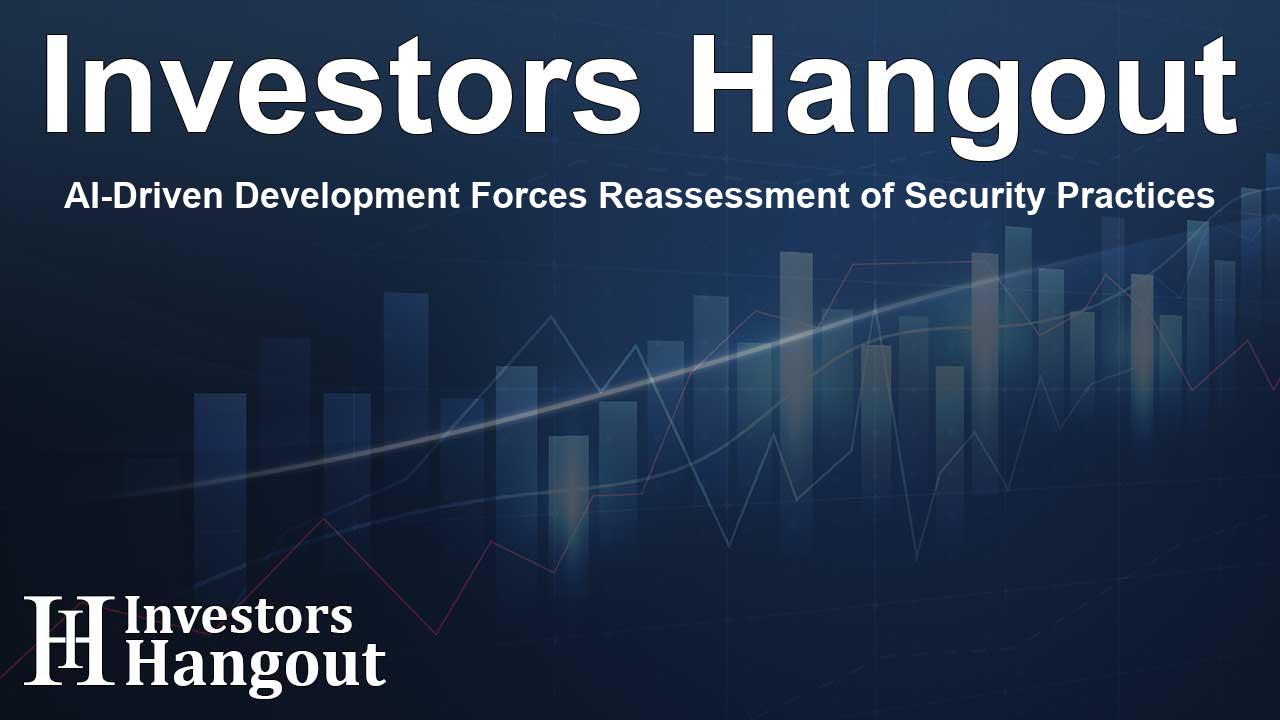AI-Driven Development Forces Reassessment of Security Practices

Addressing the Gap in Security and Development
As organizations embrace rapid deployment of software, there is a noticeable lag in security practices, leading to increased risks. This evolving landscape highlights the essential need for businesses to adopt more robust security measures in tandem with development practices. The findings from recent research show that the pressure to deliver code efficiently is affecting security protocols significantly.
Insights from Recent Research
Black Duck Software has recently published a comprehensive report that dives into this growing concern. The report includes feedback from over 1,000 software development and security professionals, shedding light on how companies are navigating the nexus of security and AI-driven development. These insights reveal a pressing urgency to integrate security into the development workflow.
Deployment Frequencies Surge
The modern development landscape is witnessing unprecedented code release frequencies. Almost 60% of professionals in the survey claim they deploy code daily, or even more frequently. While this rapid pace of deployment is impressive, traditional security practices are struggling to keep up. Consequently, many teams experience increased friction between development and security functions.
The Challenge of Manual Processes
A staggering 46% of organizations reportedly still rely on manual security processes, which can lead to incomplete security testing coverage. This reliance on manual interventions not only impedes the efficiency of the deployment process but also contributes to a growing 'security debt' that organizations must manage moving forward.
The Issue of Tool Overload
Another critical finding from the report indicates a prevalent 'tool sprawl crisis' in security practices. More than 71% of respondents expressed concerns that a significant proportion of their security alerts are merely false positives or redundant findings from various tools. This issue detracts from the overall effectiveness of security investments, raising questions about the actual ROI of current security strategies.
Balancing Speed and Security
An overwhelming majority—81%—indicated that security testing negatively affects development speed. Such findings underline the growing tension between the teams responsible for coding and those tasked with ensuring security, as both operations strive for their respective priorities in a fast-paced market environment.
The Role of AI in Security
AI has emerged as a vital tool for enhancing security measures in development. However, it also introduces new risks and complexities. A notable 63% of professionals believe that AI can lead to writing more secure code, but 57% agree that it also brings novel security challenges to the forefront. This dual nature of AI necessitates a comprehensive approach to governance and risk management.
Strategies for Improvement
Given the challenges highlighted in the survey, there is a clear demand for better integration of security practices into development workflows. Achieving this integration is seen as vital; 27% of respondents identified improved workflow integration as the top priority for better application security testing. This shift signifies a movement towards embedding security protocols directly into development processes, allowing for seamless collaboration between both teams.
Conclusion from Black Duck's CEO
Jason Schmitt, the CEO of Black Duck, stresses the importance of evolving security practices: "The findings paint a clear picture: the old ways of doing application security aren't working, and speed without integrated security creates risk for companies." He underscores the need for development teams to transition towards a proactive security strategy that fully integrates within their workflows to achieve scalable security measures.
Frequently Asked Questions
What is the core problem identified in the Black Duck report?
The report highlights a significant gap between the rapid pace of development and the slower, manual security practices that lead to increased risks and security debt.
How do development teams perceive security testing?
Many development teams feel that security testing considerably slows down their pace of work, resulting in a conflict with security protocols.
What percentage of organizations rely on manual security processes?
Approximately 46% of surveyed organizations still depend on manual processes for security, which hampers efficient development.
How is AI impacting application security?
AI is viewed as a double-edged sword, providing advantages in writing secure code while also introducing new, complex risks.
What do professionals consider a priority for improving application security?
Many professionals prioritize better integration of security into development workflows as a key factor in improving application security testing.
About The Author
Contact Riley Hayes privately here. Or send an email with ATTN: Riley Hayes as the subject to contact@investorshangout.com.
About Investors Hangout
Investors Hangout is a leading online stock forum for financial discussion and learning, offering a wide range of free tools and resources. It draws in traders of all levels, who exchange market knowledge, investigate trading tactics, and keep an eye on industry developments in real time. Featuring financial articles, stock message boards, quotes, charts, company profiles, and live news updates. Through cooperative learning and a wealth of informational resources, it helps users from novices creating their first portfolios to experts honing their techniques. Join Investors Hangout today: https://investorshangout.com/
The content of this article is based on factual, publicly available information and does not represent legal, financial, or investment advice. Investors Hangout does not offer financial advice, and the author is not a licensed financial advisor. Consult a qualified advisor before making any financial or investment decisions based on this article. This article should not be considered advice to purchase, sell, or hold any securities or other investments. If any of the material provided here is inaccurate, please contact us for corrections.
